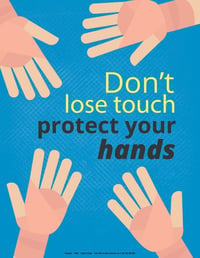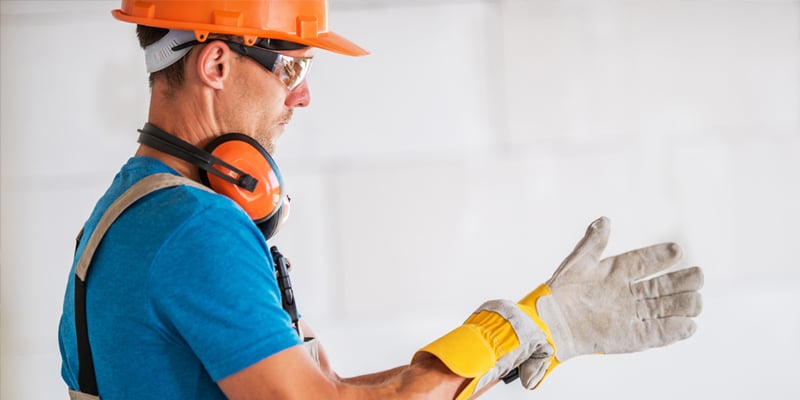Safety

By
Rob Boyle
October 10, 2024
Updated
October 10, 2024
3 min read

Why is hand safety so important?
It has been estimated that almost 20% of all disabling accidents on the job involve the hands.
Without your fingers or hands, your ability to work would be greatly reduced. Your hands are one of your greatest assets and must be protected.
Why is PPE necessary for hands and arms?
 Despite the precautions we take, your hands will receive minor injuries from time to time. Hands are exposed to many hazards, such as cuts from sharp objects, smashing and pinching from moving machinery, joint and nerve pain, environmental contact (heat, cold, plants, insects), and chemicals.
Despite the precautions we take, your hands will receive minor injuries from time to time. Hands are exposed to many hazards, such as cuts from sharp objects, smashing and pinching from moving machinery, joint and nerve pain, environmental contact (heat, cold, plants, insects), and chemicals.
Common causes of hand injuries include:
- Improper use of tools or using the incorrect tool
- Lifting or applying force incorrectly
- Using the wrong PPE or failing to utilize PPE
- Distraction and lack of awareness/focus due to to complacency
- Inadequate assessment of risk
- Bypassing safety procedures
- Cutting corners or rushing
How can I protect my hands from injury at work?
- Wear protective clothing and don't take it off.
- Use appropriate work gloves when handling rough materials and when hands are directly involved with lifting or moving objects. Make sure the work gloves offer the right combination of dexterity and protection needed for the job/task.
- Take time to remove or bend down protruding nails, splinters and sharp edges on materials before you begin working with them.
- Always use machinery guards.
- When moving objects with a hand cart or truck, make sure that you have sufficient room to get through doorways and small spaces with enough clearance for cart and hands.
- Keep hands free of grease and oil – slippery hands can get you in trouble. If you get grease or oil on your hands, clean them right away.
- For safety’s sake, do not wear any rings when working – a ring caught in machinery or on a protruding object can badly damage a finger.
- Wear gloves to pick up broken glass, nails or other sharp objects – including when sweeping up. Never attempt to handle these things with your bare hands.
- Keep your hands in places where you can see them. Avoid putting them out of your line of sight.
- Work smarter rather than working faster.
- Do not count on your reflexes to save your hands and fingers.

How can I ensure I don’t injure my hands at work?
Before every task, ask the following questions:
- Do you know the hand hazards of performing the task? What hazards could be in the place that you are about to put your hands and fingers?
- Is the right tool being used for the job?
- Have you been trained on the correct use of the tool you are using?
- Has unexpected movement from the tool, part or material which could result in a line of fire injury been considered?
- Have you asked yourself what can go wrong?
- What happens if the tool slips? Is there anything you might hit? Could you cut yourself on anything?
- Can you get burned?
- If there is a liquid, could it be harmful to your skin or body?
- Have you protected your hands and fingers with the right PPE?
